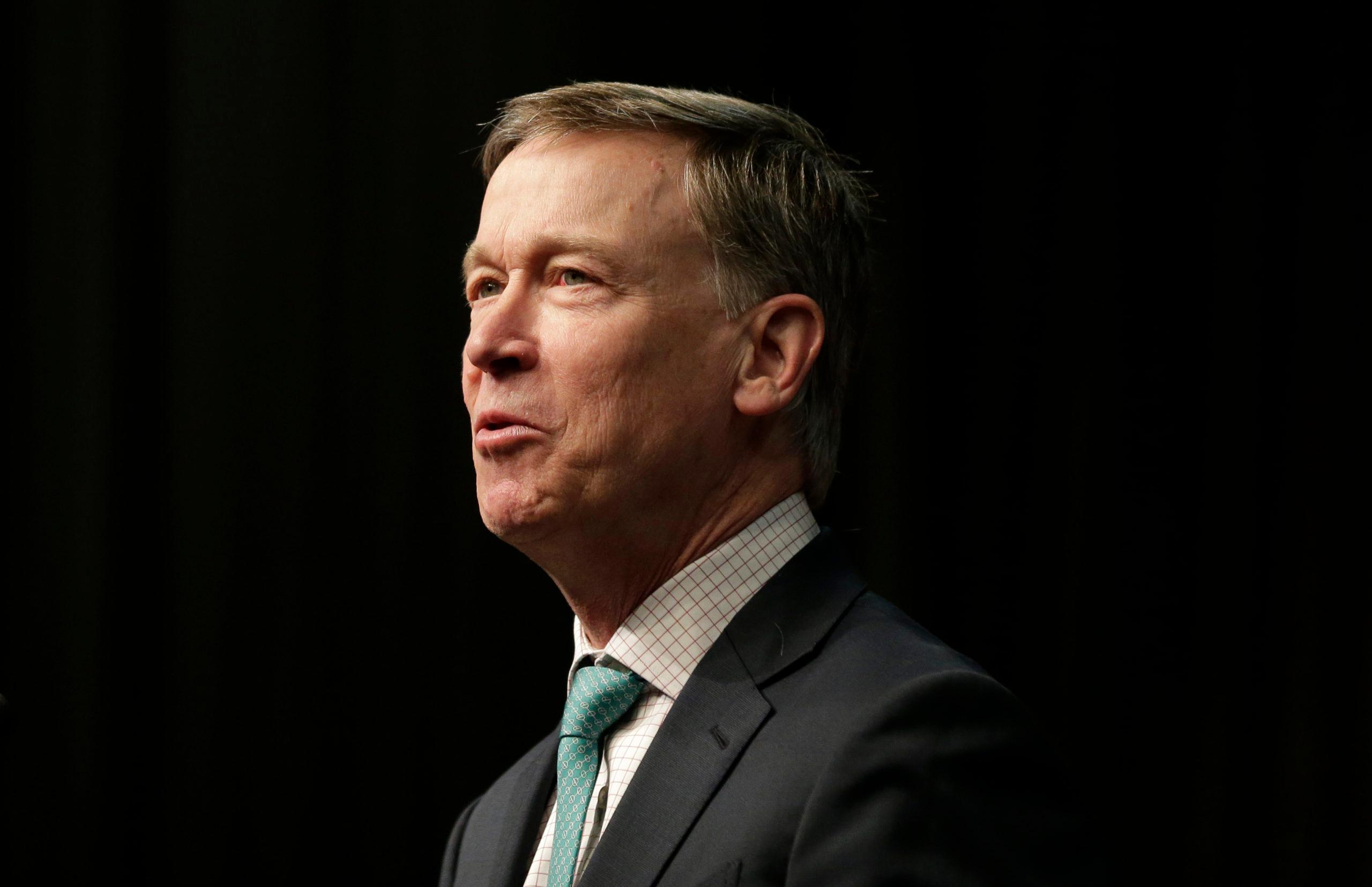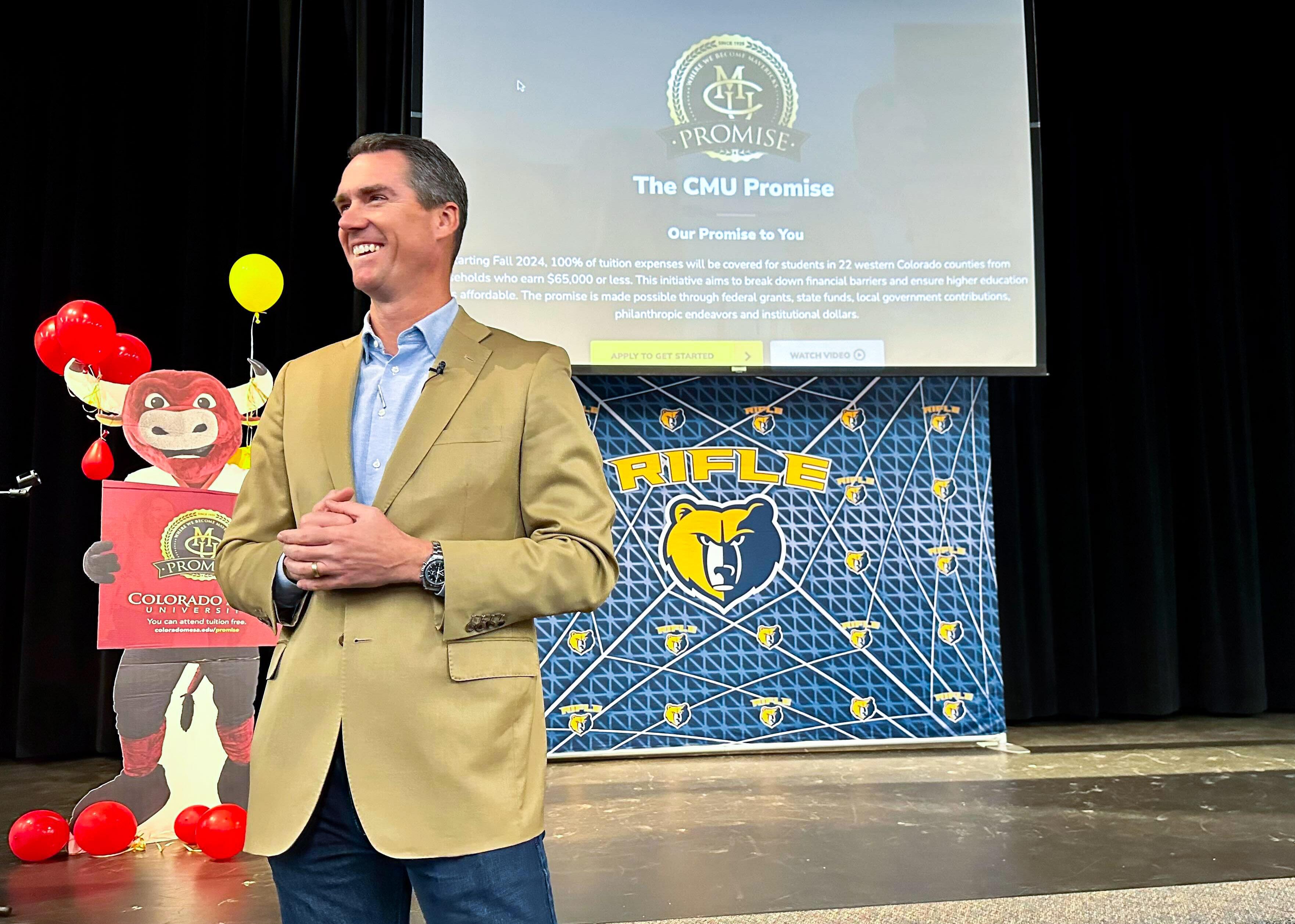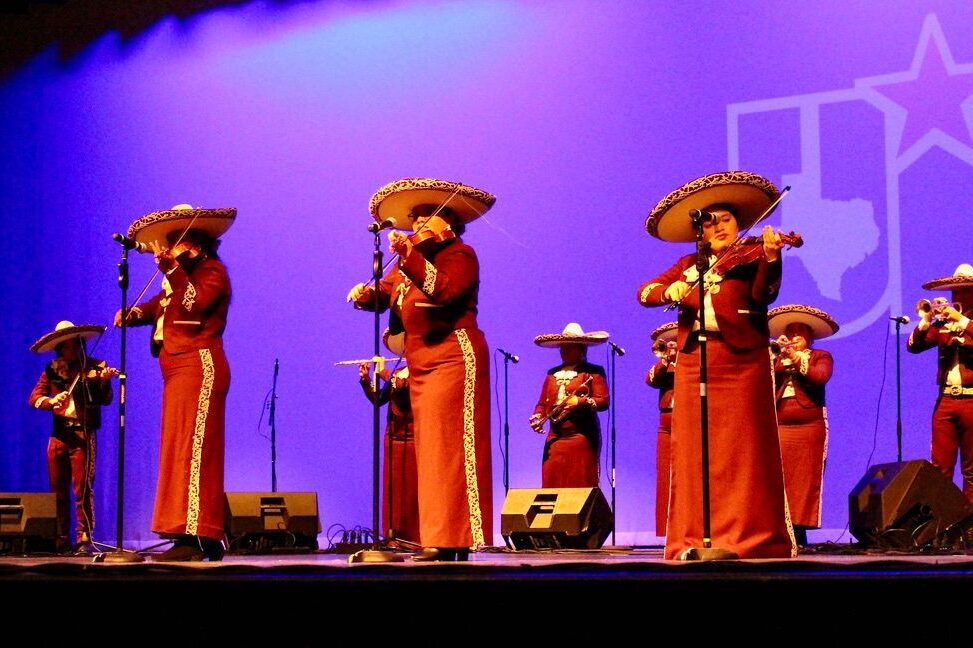
Updated May 26 @ 11:08 a.m.
Former Gov. John Hickenlooper's legal team has argued that an ethics hearing scheduled to take place via video conference on June 4 violates his constitutional rights. They say Hickenlooper will not attend the remote proceedings and ask that the commission reschedule the hearing.
The ethics complaint, which dates back to 2018, alleges that Hickenlooper improperly accepted free air travel from friends and supporters.
The hearing, which is expected to be over within a day and is intended to happen before the Ethics Commission makes a decision on the matter, has already been rescheduled several times. The former governor planned to appear in person in March, but the meeting was canceled after the emergence of the new coronavirus. The June hearing is scheduled to take place less than four weeks before Colorado's primary for U.S. Senate, where Hickenlooper is on the ballot to try to win the Democratic nomination.
The Ethics Commission tested its remote meeting capabilities May 19, and a motion filed by Hickenlooper's team on May 22 says the test was, "riddled with both the predicted technological snafus as well as ones that no one had planned for," and "displayed the threats to due process that should, under any condition, lead a tribunal to rethink its order," because it denies the former governor the opportunity to "confront his accusers 'face-to-face.'"
Hickenlooper's team also says he's not able to meet with his attorney, given the public health threats.
The group that made the complaint in 2018, the Public Trust Institute, led by former Republican state Speaker of the House Frank McNulty, actually agreed with Hickenlooper's team about the trouble with a hearing via video conference. In a filing in April, the institute wrote, "a remote hearing raises due process issues that cannot be overcome given the limitations of a remote hearing."
Public Trust Institute has asked the commission to wait until the hearing can be done safely in person.
In a response to Hickenlooper's latest filing, Public Trust Institute said it does not object to Hickenlooper's request to delay so that an in-person hearing can take place. However, it objected to the idea Hickenlooper's team proposed to submit testimony in writing, saying that since the facts of the matter are in dispute, Public Trust Institute needs the chance to cross-examine Hickenlooper in the hearing.
McNulty has been steadfast that Hickenlooper's conduct was illegal, while Hickenlooper's team has countered that the travel was a mix of personal and business, and doesn't show any attempt to influence him when he was governor. Hickenlooper's team believes that a national conservative political group, America Rising Corp., helped bring about the complaint.
Ballots for the June primary election are set to go out just days after the scheduled remote ethics hearing.
Editor's note: This story has been updated to reflect the Public Trust Institute's response to Hickenlooper's request for delay.









